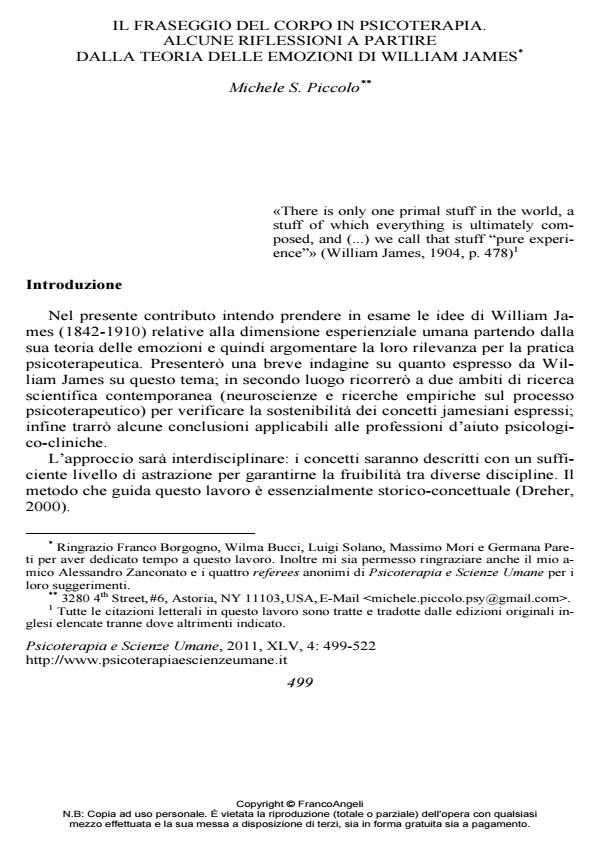The phrasing of the body in psychotherapy. remarks from William James’ theory of emotions
Journal title PSICOTERAPIA E SCIENZE UMANE
Author/s Michele S. Piccolo
Publishing Year 2011 Issue 2011/4
Language Italian Pages 24 P. 499-522 File size 298 KB
DOI 10.3280/PU2011-004009
DOI is like a bar code for intellectual property: to have more infomation
click here
Below, you can see the article first page
If you want to buy this article in PDF format, you can do it, following the instructions to buy download credits

FrancoAngeli is member of Publishers International Linking Association, Inc (PILA), a not-for-profit association which run the CrossRef service enabling links to and from online scholarly content.
The author reviews James-Lange theory of emotion so as to rediscover modern elements that may apply to contemporary psychotherapy. The emerging of emotions from (1) the un-mediated contact between body and the real world and from (2) the recollection of previous contacts underlines the permeability of the individual to the surrounding environment. James’s realism should cause psychotherapists to reflect on the importance of listening to patients’ "real events" and on the actual impact of the therapist ("personal qualities") on the treatment. The Author then focuses on the relationship between the patient’s narrative and body during treatment by emphasizing how the patient’s communication that is expressed through "imagery" can turn out to be a reference to somatic earlier experience. The author traces links between William James’ conception of emotions, the "feeling of what happens" as conceptualized by Antonio Damasio, and considerations of subsymbolic experience as advanced by Wilma Bucci.
Keywords: James-Lange, Bucci, body-mind, subsymbolic, existential realism
Michele S. Piccolo, Il fraseggio del corpo in psicoterapia. Alcune riflessioni a partire dalla teoria delle emozioni di William James in "PSICOTERAPIA E SCIENZE UMANE" 4/2011, pp 499-522, DOI: 10.3280/PU2011-004009